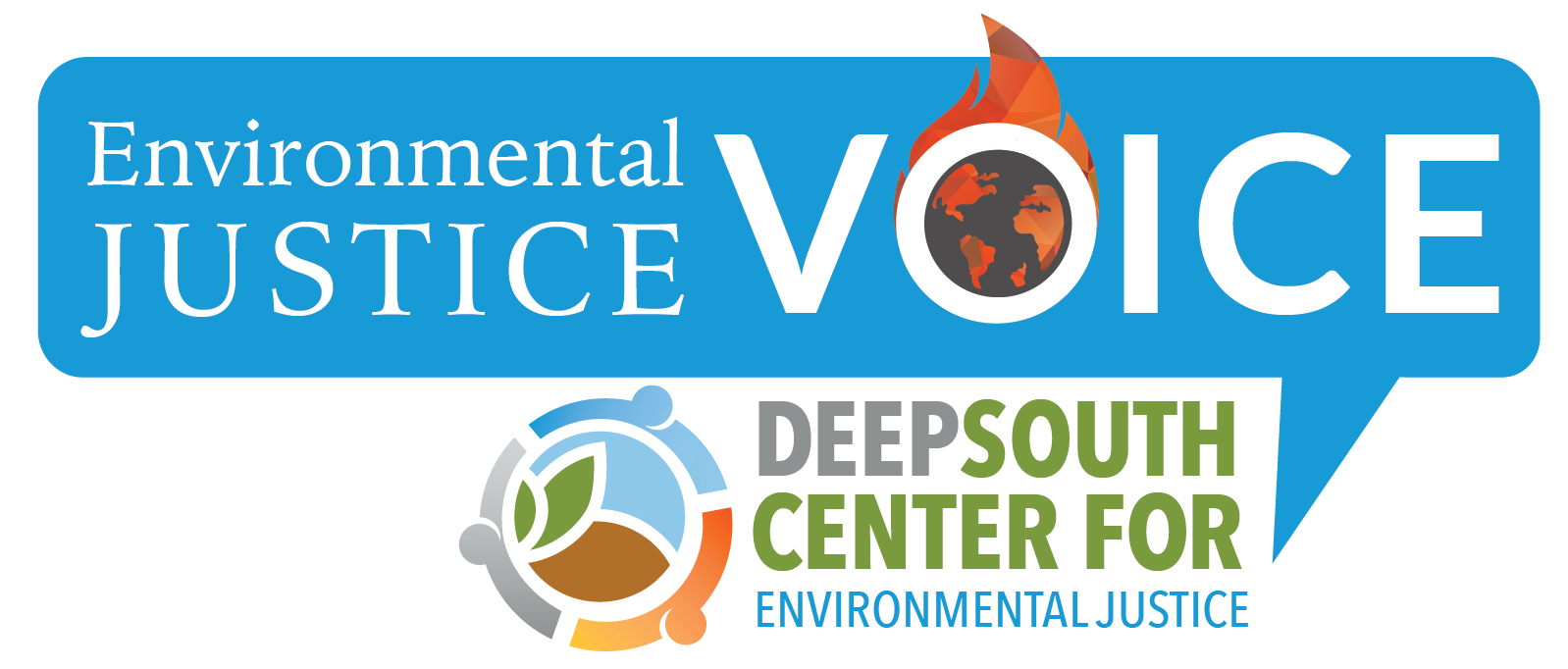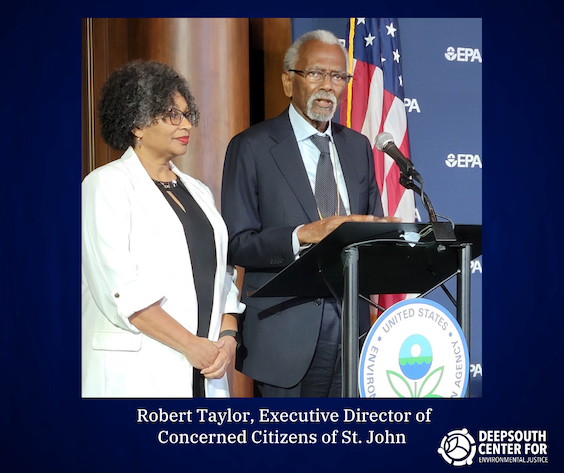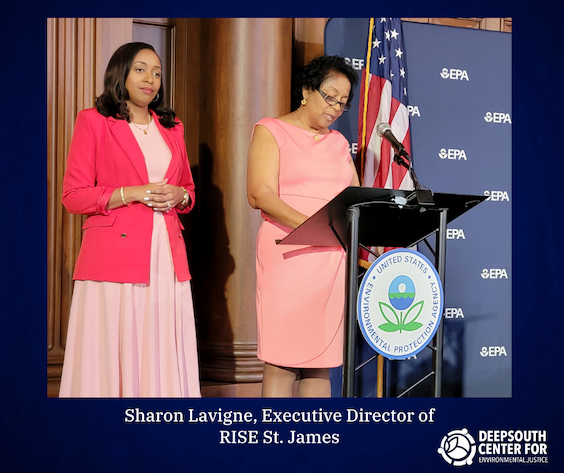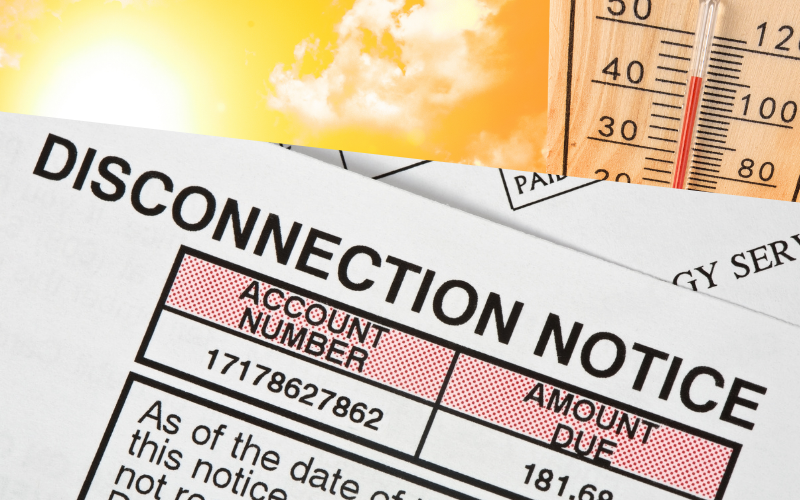
Jul 10, 2024 | DSCEJ General News, Research and Policy News, The Latest News
July 10, 2024 – The Energy Future New Orleans Coalition (EFNO) has sent a letter to the New Orleans City Council calling upon the Council to address the utility debt crisis that has left New Orleanians powerless. Through the discovery process under docket UD-23-02, we have learned that Entergy New Orleans’ (ENO) residential disconnection rate for 2023 was 19%, meaning nearly one out of every five residents was disconnected last year for inability to pay ENO’s unaffordable bills.
The letter urges the Council to allocate funds from the recent Federal Energy Regulatory Commission (FERC) settlement to establish a standing arrearage management program for ENO ratepayers. The terms of the FERC settlement (as established by R-24-194) included a $98M lump sum payment by System Energy Resources, Inc. to ENO.
Of that $98M, $32M were designated to be held by ENO as a credit for customers, to be distributed at the direction of the Council in the amount of up to $10M per year.
EFNO has previously urged the Council, under docket UD-23-02, to implement an arrearage management program that pairs incremental debt forgiveness with energy efficiency improvements in ratepayers’ homes. This approach will not only help residents escape utility debt but also ensures they remain debt-free in the future.
We, the members of EFNO, once again call upon the Council to relieve the significant burden of utility debt by devoting this FERC settlement money to the establishment of this crucial arrearage management program. Given the extreme heat that we have experienced already this summer, and the likelihood of an active tropical storm season, it is imperative that the Council act now to protect vulnerable ratepayers from being disconnected from a vital service.
Members of EFNO will be at the regular Council meeting on Thursday, July 11 to urge the Council to act on this proposal and will be available to speak to members of the press.
READ THE LETTER
About Energy Future New Orleans: EFNO is a coalition of diverse people and organizations dedicated to making New Orleans an equitable and renewable energy city for present and future generations. The Deep South Center for Environmental Justice is a member of the EFNO Coalition
About the Deep South Center for Environmental Justice: Families in the Gulf Coast deserve to live in communities that are free from deadly air and are more resilient to climate change and extreme weather. The Deep South Center for Environmental Justice (DSCEJ) works to empower and engage communities to put environmental justice and equity at the center of all climate action. Led by environmental justice scholar and advocate, author, civic leader and professor of Sociology Dr. Beverly L. Wright, the DSCEJ uses research, education, and community and student engagement to advocate for policy change, lead health and safety training for environmental careers, develop social and emotional community wellness programs, and create new and environmentally healthy opportunities for the residents of communities disproportionately impacted by historic environmental injustice.

Jun 27, 2024 | DSCEJ General News, Press Releases, Research and Policy News, The Latest News
Following today’s announcement on the federal approval of Venture Global’s LNG project in Cameron Parish, Dr. Beverly Wright, Founder and Executive Director of the Deep South Center for Environmental Justice (DSCEJ), released the following statement:
Most people in Louisiana have never heard of the Federal Energy Regulatory Commission (FERC) in Washington, DC, but its decisions significantly impact our everyday lives. The recent approval of Venture Global’s enormous liquefied natural gas facility in Cameron Parish follows a series of unjust decisions by FERC that have unleashed serious problems for Gulf Coast communities.
Residents are dealing with the disruptions brought on by constructing these facilities, which include draining the local water supply to the point that the water level is inadequate to put out a fire. LNG is ripping apart the livelihoods of fishing families. Air pollution has increased with LNG operations, which also contribute to the climate crisis that whips up super storms in our region. Through all of this, FERC has neglected the important work of establishing standards for decision-making that ensures environmental and climate justice.
We’re left with a FERC decision that will make our communities more polluted and our planet hotter.
###
About the Deep South Center for Environmental Justice
Families in the Gulf Coast deserve to live in communities that are free from deadly air and are more resilient to climate change and extreme weather. The Deep South Center for Environmental Justice (DSCEJ) works to empower and engage communities to put environmental justice and equity at the center of all climate action. Led by environmental justice scholar and advocate, author, civic leader and professor of Sociology Dr. Beverly L. Wright, the DSCEJ uses research, education, and community and student engagement to advocate for policy change, lead health and safety training for environmental careers, develop social and emotional community wellness programs, and create new and environmentally healthy opportunities for the residents of communities disproportionately impacted by historic environmental injustice.
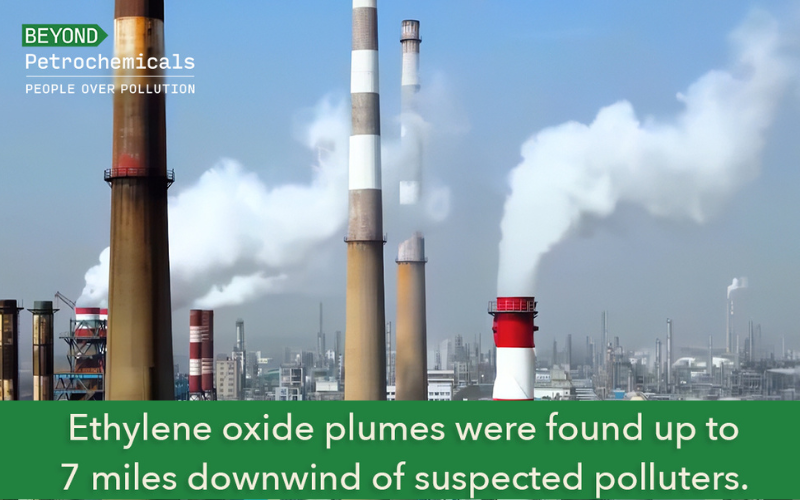
Jun 11, 2024 | DSCEJ General News, Press Releases, Research and Policy News, The Latest News
June 11, 2024 – Today, researchers at John Hopkins University issued a report of their air monitoring in Louisiana, which detected ethylene oxide (EtO) concentrations nine times higher than pollution modeling by EPA and LDEQ. This means communities are being exposed to significantly greater amounts of EtO than assumed in regulations and permitting decisions.
The air monitoring research is funded by the Beyond Petrochemicals Campaign, which is sharing the following info.
Read the Environmental Science & Technology peer-reviewed study.
View the press release
Media Contact:
Matt Smelser
512-739-9635
matt@beyondpetrochemicals.org
About Beyond Petrochemicals:
Launched by Bloomberg Philanthropies in September 2022, Beyond Petrochemicals: People Over Pollution aims to halt the rapid expansion of petrochemical and plastic pollution in the United States. The campaign draws on the success of the Beyond Coal campaign, supported by Bloomberg Philanthropies, and Bloomberg’s Beyond Carbon campaign, to turbocharge existing efforts led by frontline communities to block the rapid expansion of 120+ petrochemical projects concentrated in three target geographies – Louisiana, Texas, and the Ohio River Valley. The campaign also works to establish stricter rules for existing petrochemical plants to safeguard the health of American communities. To date, Beyond Petrochemicals has helped raise awareness and lead timely collaboration efforts using its four pillars of community leadership, data and research, legislation and litigation, and stakeholder engagement to accelerate its goals. For more information, please visit us at beyondpetrochemicals.org and follow us on Instagram, LinkedIn, Facebook, and X.
The Deep South Center for Environmental Justice is a partner organization with Beyond Petrochemicals.
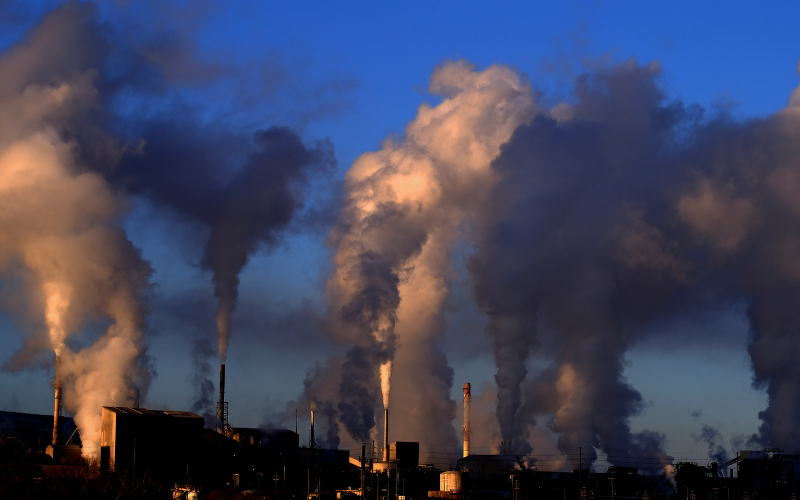
Apr 26, 2024 | Dr. Beverly Wright News, DSCEJ General News, HBCU Climate Change Consortium News, Press Releases, Research and Policy News
Dr. Beverly Wright and Dr. Robert D. Bullard released the following statements in response to EPA rule
FOR IMMEDIATE RELEASE – April 26 2024
Contact:
Ginger LeBlanc
media@dscej.org
David Castillo
David.Castillo@tsu.edu
(NEW ORLEANS, LA) Yesterday, the U.S. Environmental Protection Agency announced a suite of final rules to reduce pollution from fossil fuel-fired power plants with the goal of protecting all communities from pollution and improving public health without disrupting the delivery of reliable electricity.
Joint Statement from the Deep South Center for Environmental Justice and Bullard Center for Environmental and Climate Justice
While we commend the Biden administration and the EPA for heeding the concerns voiced by our environmental justice communities and taking action, we will continue to advocate for bolder pollution reductions and a transition to renewable energy.
These new rules are narrowly targeted to address mercury and coal ash pollution. Mercury from power plants is one of the main sources of mercury contamination in food and fish, which poses a serious threat to public health, disproportionately affecting pregnant people and children.
While the focus in these areas is welcome and will usher in life-saving changes for many communities, we remain deeply concerned about the use of carbon capture storage (CCS) technology as part of the solution. During this process, a power plant’s CO2 is collected, carried by pipeline, and injected underground as permanent waste storage. This three-step process aims to shift the emissions of CO2 in the air where it enters the atmosphere to disposing of it below ground.
In the atmosphere, CO2 contributes to the climate crisis by trapping heat on the planet. In a pipeline, CO2 can leak and displace oxygen with disastrous consequences for nearby communities. Once underground, CO2 can contaminate groundwater used for drinking, trigger earthquakes, and escape above ground through unplugged wells.
The industrial release of CO2 is harmful wherever it goes. Current industrial plans for deploying CCS are concentrated in vulnerable and overburdened communities in the Gulf Coast Region. In response to this injustice, communities in Louisiana and Texas are rising up in defense of their health and safety and the wellbeing of future generations. Residents are leading efforts to transition away from dirty energy to efficient and renewable solar and wind energy. This transition must be just, fair and equitable to address structural inequality that has systematically left out and left behind our most vulnerable populations and communities.
Furthermore, the new rules fall short in a clear, rigorous cumulative impacts assessment component, which is critical to addressing the health and well-being of environmental justice communities. Gulf Coast environmental justice communities have been overburdened with pollution for so long, it is high time that the laws of the land protect them and work to clean up the historical pollution. The new rules also fall short of addressing methane gas-fired power plants, facilities which also plague overburdened communities.
Quote from Dr. Beverly Wright, Founder & Executive Director of the Deep South Center for Environmental Justice:
“Once again, under Michael Regan’s leadership, the EPA has taken an important step forward in reducing pollution in our air and attempting to create healthier communities across the country. Carbon capture storage remains one of the biggest threats to communities of color being harmed by the polluting industries that exacerbate our climate crisis. Through our ongoing dialogue with EPA on a host of issues, we voice our opposition to CCS regularly. Along with an overreliance on CCS, the new rules do not sufficiently address methane gas-fired power plants, which are overwhelmingly located in communities with Black and brown residents. We will continue to hold policymakers accountable for enforcing these new rules and relentlessly fighting against CCS. The EPA needs to reduce climate pollution, not shift it.”
Quote from Dr. Robert D. Bullard, Founder & Executive Director of the Bullard Center for Climate and Environmental Justice:
“We applaud the toxics and hazardous waste reductions at power plants proposed by the EPA. These new rules are an important step toward justice for our most disadvantaged communities. Yet, the new rules are not enough. The EPA must incorporate consequential cumulative impact assessments of pollution and other environmental stressors, and truly address the inequity that persists in our frontline communities. We are also gravely disappointed that the vehicle for greenhouse gas reductions is through carbon capture and sequestration. Carbon capture and sequestration is a ruse and has no place in our discussion of a justice-centered transition away from fossil fuels pollution.”
###
About the Deep South Center for Environmental Justice
Families in the Gulf Coast deserve to live in communities that are free from deadly air and are more resilient to climate change and extreme weather. The Deep South Center for Environmental Justice (DSCEJ) works to empower and engage communities to put environmental justice and equity at the center of all climate action. Led by environmental justice scholar and advocate, author, civic leader, and professor of Sociology Dr. Beverly L. Wright, the DSCEJ uses research, education, and community and student engagement to advocate for policy change, lead health and safety training for environmental careers, develop social and emotional community wellness programs, and create new and environmentally healthy opportunities for the residents of communities disproportionately impacted by historic environmental injustice.
About Bullard Center for Environmental and Climate Justice
The Bullard Center for Environmental and Climate Justice at Texas Southern University addresses longstanding issues of systemic inequality and structural racism that cause disproportionate pain, suffering, and death in Black and other people of color communities. The Center is directed by environmental justice scholar Dr. Robert D. Bullard and is housed in the Barbara Jordan-Mickey Leland School of Public Affairs. It strives to be a leading force for transformative environmental, climate, and racial justice using rigorous science, community-driven research, policy, civic engagement programming, and effective advocacy.
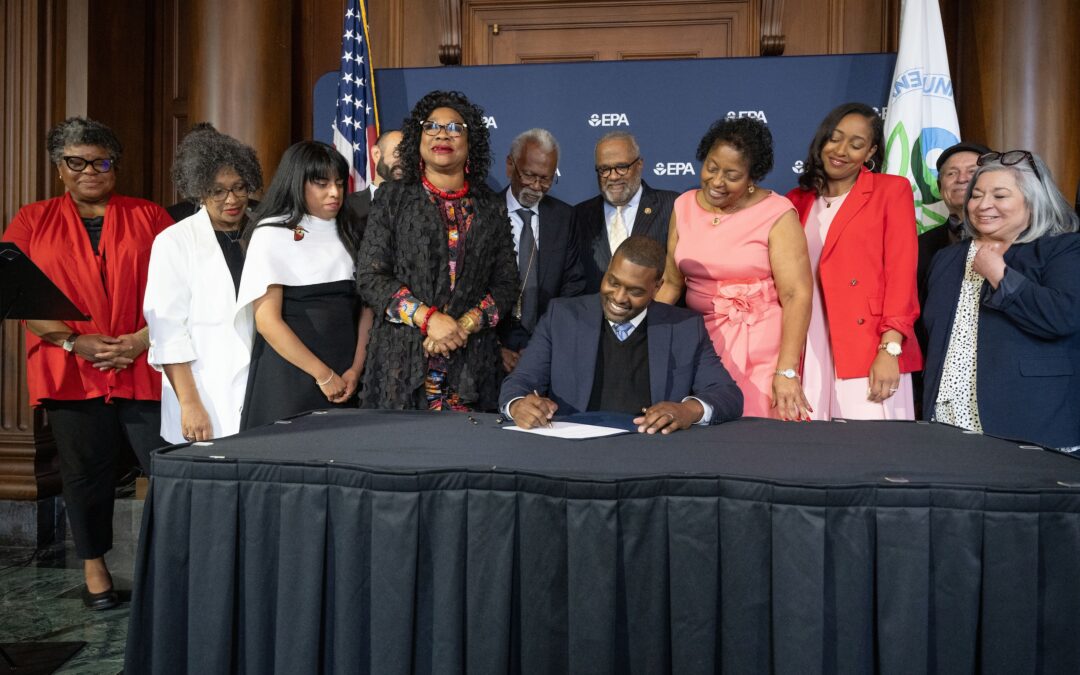
Apr 9, 2024 | Dr. Beverly Wright News, DSCEJ General News, HBCU Climate Change Consortium News, Press Releases, Research and Policy News
Federal Agency Cuts to Petrochemical Pollution Shows Change Is Possible in Louisiana’s Cancer Alley
WASHINGTON, DC (April 9, 2024) – Today, Dr. Beverly Wright, Founder and Executive Director of the Deep South Center for Environmental Justice, joined US Environmental Protection Agency Administrator Michael Regan to announce groundbreaking requirements for reduced air pollution at petrochemical facilities concentrated in Louisiana’s Cancer Alley, the Texas Gulf Coast, and operating throughout the U.S.
“Today’s action by Administrator Reagan to significantly cut toxic pollution and cancer risk is an historic breakthrough that can change Cancer Alley,” said Dr. Wright. “We are thankful for his leadership and commitment to environmental justice.
”Louisiana community advocates, Robert Taylor, Executive Director of Concerned Citizens of St. John, and Sharon Lavigne, Executive Director of RISE St. James, spoke of their struggles with governmental inaction on industrial pollution, and expressed their gratitude for this historic moment.
The new EPA regulations force the Denka (formerly DuPont) neoprene facility in St. John Parish and other petrochemical plants to reduce chloroprene emissions by 80 percent. Overall, the required reductions include 6,200 tons of chloroprene, ethylene oxide and other toxic air emissions each year, which are expected to lower cancer risks in fenceline communities. The significantly lower emission requirements would also apply to Formosa if it pursues renewals of air permits next year. Communities and the public will have access to data from new fenceline air monitoring imposed by the EPA rule which establishes action levels for robust environmental enforcement.
Under the Clean Air Act, EPA established new HON regulations requiring significant reductions of chloroprene, ethylene oxide, and volatile organic compounds. HON stands for Hazardous Organic NESHAP, and NESHAP stands for National Emission Standards for Hazardous Air Pollutants.
Long-term exposure to ethylene oxide and chloroprene can increase the risk of certain types of cancer, such as lymphoma, leukemia, breast cancer, and liver cancer. EPA expects the rule to better protect children, who are more exposed and more susceptible to the effects of these toxic chemicals.
The EPA announcement follows the EPA’s Journey to Justice in Louisiana that brought Administrator Regan to communities in St. John Parish and St. James Parish, where he promised to hold polluting industries accountable for their actions in overburdened communities.
“For decades, regulating agencies have completely abdicated their responsibility to the communities they are supposed to protect,” said Dr. Wright. “Unfortunately, that meant generations of families losing loved ones to cancer. Administrator Regan promised community members that he would take action and today is a major step in fulfilling that promise. There is no doubt that the EPA’s HON rule will save lives.”
Read Dr. Wright’s Official Statement
Read the EPA Press Release
Watch the EPA Press Conference





